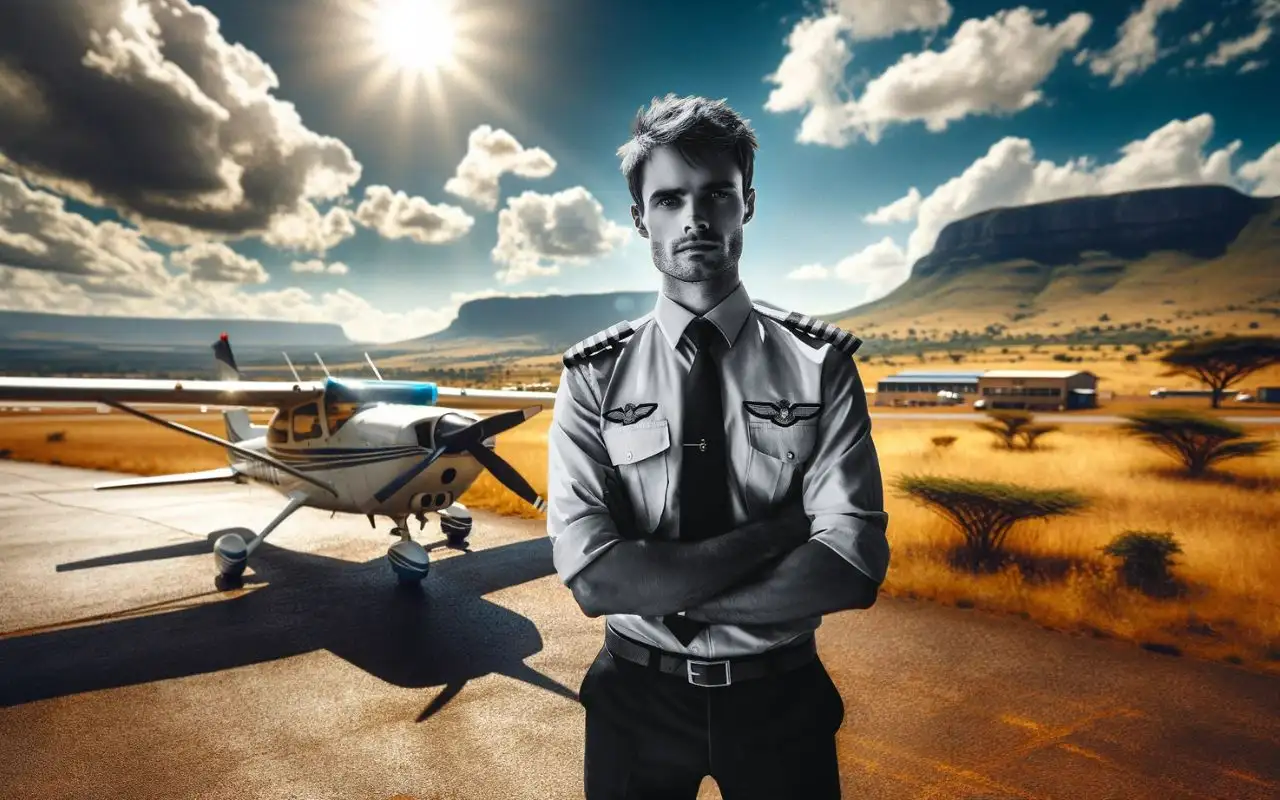Commercial Pilots in South Africa earn an average annual salary of R306,000, with a salary range from R35,000 to R1 million.
The pay structure includes bonuses ranging from R4,000 to R102,000, and profit sharing between R850 and R250,000.
The total pay, which encompasses salary, bonuses, profit sharing, and commissions, varies from R61,000 to R1 million.
Salary progression is notable, with entry-level pilots earning R250,182, and early career pilots with 1-4 years experience earning R280,000.
Mid-career pilots with 5-9 years experience earning R442,186, and experienced pilots with 10-19 years experience earning R466,019.
Late-career pilots, with 20 years or more of experience, earn an average total compensation of R660,000.
Factors Affecting Pilot Salary in South Africa
Experience
Pilots with more flight hours and years of service command higher salaries. Seniority plays a significant role in airline pay structures, with captains earning substantially more than first officers.
Airline & Aircraft Type
Different airlines offer varying salary packages based on factors like size, profitability, and operational costs. Pilots flying larger, more complex aircraft like wide-body jets typically earn more compared to those operating smaller regional turboprops.
Qualifications & Certifications
Additional licenses and ratings, such as instrument ratings or type ratings for specific aircraft, can significantly increase earning potential. Holding instructor or examiner certifications can unlock additional income streams.
Route Network & Duty Hours
Pilots flying long-haul international routes with extended duty hours often earn more than those operating shorter domestic flights. However, longer routes can also translate to less frequent flying days, impacting overall income.
Location & Cost of Living
Salaries can vary based on the airline’s base location and the associated cost of living. Pilots based in major cities with higher living expenses may receive location-based allowances to compensate.
Unionization & Collective Bargaining Agreements
Pilots represented by unions negotiate collective bargaining agreements that set minimum salary scales and benefits packages, influencing overall earnings.
Demand & Supply
The pilot job market dynamics significantly impact salaries. Periods of high demand with pilot shortages can lead to increased pay packages and signing bonuses.
Benefits & Allowances
Beyond base salary, pilots often receive benefits packages that include health insurance, travel allowances, and pension contributions, impacting their total compensation.
Performance & Bonuses
Some airlines offer performance-based bonuses or profit-sharing schemes that can boost pilot income based on individual or company performance.
Personal Career Choices
Individual career choices, such as flying for cargo airlines, private jets, or charter operations, can offer different salary structures and earning potential compared to traditional commercial airlines.
Education and Qualifications of A Pilot in South Africa
To become a pilot in South Africa, specific educational and qualification requirements must be met:
Minimum Education
Completion of Matric (Grade 12) with a pass in Mathematics is required. Strong performance in Physics, Geography, and English is highly beneficial.
Private Pilot Licence (PPL)
This basic flying license allows solo flight in good weather conditions. Minimum requirements include 45 hours of flight training, passing theoretical exams, and a Class II medical certificate.
Commercial Pilot Licence (CPL)
This enables flying for hire and compensation. It requires 200 hours of flight time (including instrument and cross-country), passing additional exams, and a Class 1 medical certificate.
Instrument Rating (IR)
This allows flight under instrument flight rules (IFR) in limited visibility conditions. It requires additional training, exams, and endorsements on the CPL.
Multi-Engine Rating (MER)
This permits flying multi-engine aircraft. It involves specific training, exams, and endorsements on the CPL.
Type Rating
This qualifies a pilot to fly a specific aircraft model. Extensive training, simulator time, and examinations are required for each type of rating.
Airline Transport Pilot Licence (ATPL)
This is the highest pilot license, enabling command of large commercial aircraft. It requires a minimum of 1500 hours of flight time, additional exams, and a Class 1 medical certificate.
General Radio Licence (GRL)
This is mandatory for all pilots to operate aircraft radios and communicate with air traffic control.
Aviation Medical Certificate
Regular medical examinations (Class II for PPL, Class 1 for CPL and higher) ensure physical and mental fitness for safe flying.
Ongoing Training
Pilots must continuously update their knowledge and skills through recurrent training, simulator sessions, and proficiency checks to maintain their licenses and ratings.
Pilots must undergo regular training and re-certification to ensure their skills and knowledge remain up-to-date. These requirements ensure that pilots in South Africa are well-equipped with the necessary skills, knowledge, and experience to safely operate aircraft in various conditions.

